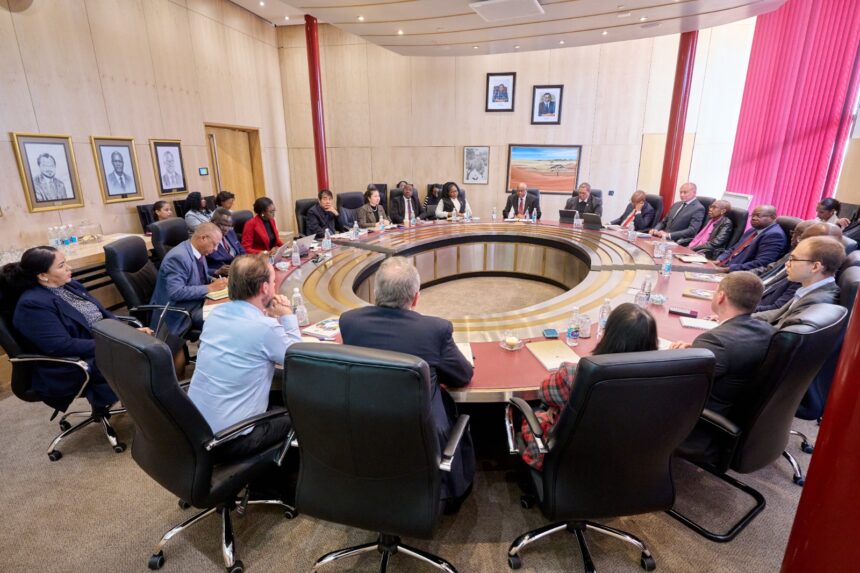Bank of Namibia (BoN) governor Johannes !Gawaxab this week highlighted the emergence of a new world order.
He said it is defined by evolving geopolitical developments, intensified trade tensions and rapid technological advancement.
He noted that these new global dynamics are challenging traditional frameworks around globalisation, multilateralism and market openness.
He called for enhanced institutional agility and strategic foresight.
“Although it is impossible to predict the future with certainty, the combined speed of these changes underscores the necessity for institutions, such as central banks, to continue to serve as guardians of stability in an environment characterised by volatility. As a central bank, we remain anchored to our mandate of price stability and financial stability,” the governor stated.
Reflecting on the bank’s strategic direction, !Gawaxab reiterated the institution’s commitment to building a smart central bank, fostering an inclusive and resilient financial system and embracing a new economy.
He highlighted key reform initiatives, including the establishment of Namibia’s first Central Securities Depository to modernise financial markets as well as the launch of the Instant Payment Programme.
This is a transformative effort to deliver fast, affordable and secure payments to all Namibians, particularly the underserved.
!Gawaxab made these remarks on Tuesday during the central bank’s annual diplomatic stakeholder engagement, which serves as a key platform for fostering dialogue with heads of mission, multilateral institutions and development partners.
The engagement was convened against the backdrop of increasing global uncertainty and complex economic shifts.
In his remarks, !Gawaxab welcomed the diplomatic community, expressing gratitude for their continued interest in the Bank’s work.
The event included a comprehensive economic presentation outlining the global and domestic economic landscape.
The presentation pointed out that the global economy is projected to grow at a subdued pace of 2.8% in 2025 and 3% in 2026.
This is amid continued volatility in trade and financial markets.
On the domestic front, BoN expects domestic economic growth to improve moderately to 3.8% in 2025, rising slightly to 4% in 2026.
This improved growth is being driven by improved performance in the agriculture, non-diamond mining sector, electricity and water as well as construction.
This is despite external pressures such as global price declines in diamonds and the potential impact of tariffs on some exports.
In addition, !Gawaxab noted that domestic inflation remains well-contained, supported by the central bank’s prudent monetary policy stance.
‘’The policy interest rate has been reduced by a cumulative 100 basis points since August 2024, contributing to a marked decline in inflation from 5.4% in January 2024 to 3.6% in April 2025,” he added.
In regards to financial stability, the governor noted that the banking sector continued to demonstrate resilience, with sufficient capital buffers and liquidity to absorb shocks and support credit extension to the real economy.
Tuesday’s meeting provided an opportunity to deliberate on broader macroeconomic issues of mutual concern.
Attendees engaged in discussions on rising global political uncertainty as well as its implications for capital flows and investment decisions in emerging markets.
Meanwhile, declining domestic inflationary pressures are evident in the last inflation print relative to cost-of-living challenges.
Furthermore, the engagement addressed the operationalisation of Namibia’s Sovereign Wealth Fund as a strategic instrument for long-term fiscal sustainability and intergenerational equity.
Other issues discussed included domestic revenue mobilisation through sustainability or social bonds.


